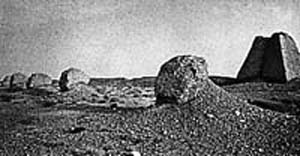Theresa Hak Kyung Cha
dal 11/8/2001 al 21/10/2001
Segnalato da
11/8/2001
Theresa Hak Kyung Cha
Berkeley Art Museum, Berkeley
In her short life and career, Theresa Hak Kyung Cha made an important contribution to American art and the influence of her pioneer work - which included film, video, performance art, mail and stamp art and artist’s books - continues to grow. This touring exhibition organized by the UC Berkeley Art Museum showcases for the first time the full range of work by this influential yet under-represented Korean American artist.

In her short life and career, Theresa Hak Kyung Cha made an important contribution to American art and the influence of her pioneer work - which included film, video, performance art, mail and stamp art and artist’s books - continues to grow. This touring exhibition organized by the UC Berkeley Art Museum showcases for the first time the full range of work by this influential yet under-represented Korean American artist.
The central theme of Cha's art is displacement. While she occasionally addressed the personal
and historical circumstances of her exile directly, Cha typically treated this theme symbolically,
representing displacement through shifts and ruptures in the visual and linguistic forms of her
works. She developed an approach to displacement based largely on cinematic forms and the
psychoanalytic aspects of French film theory. Cha integrated elements of these theories into her
own exploration of the processes of memory, communication, and psychic transformation.
Cha's art incorporated a wide array of references drawn from diverse cultures and periods. From
her native Korean culture, she incorporated elements of traditional dance, shamanism, and
childhood traditions of making handmade books. Korean avant-garde poetry, itself partially
inspired by French Symbolism, was also influential. Both Confucianism and Catholicism--the two
predominant spiritual traditions in Korea--are central to Cha's work, especially the theme of
redemption through suffering and the idea of family as spiritual community. In her approach to
language, Cha combined the aesthetic ideals of concrete poetry and certain forms of conceptual
art with a rigorous, analytical method derived, in part, from her readings of Roland Barthes,
Jacques Derrida, and Jacques Lacan. The psychologist A.R. Luria's theories of memory were
especially influential in Cha's later work.
(Lawrence Rinder)
Berkeley Art Museum and Pacific Film Archive University of California Berkeley
University of California Berkeley
2626 Bancroft Way San Francisco, CA



